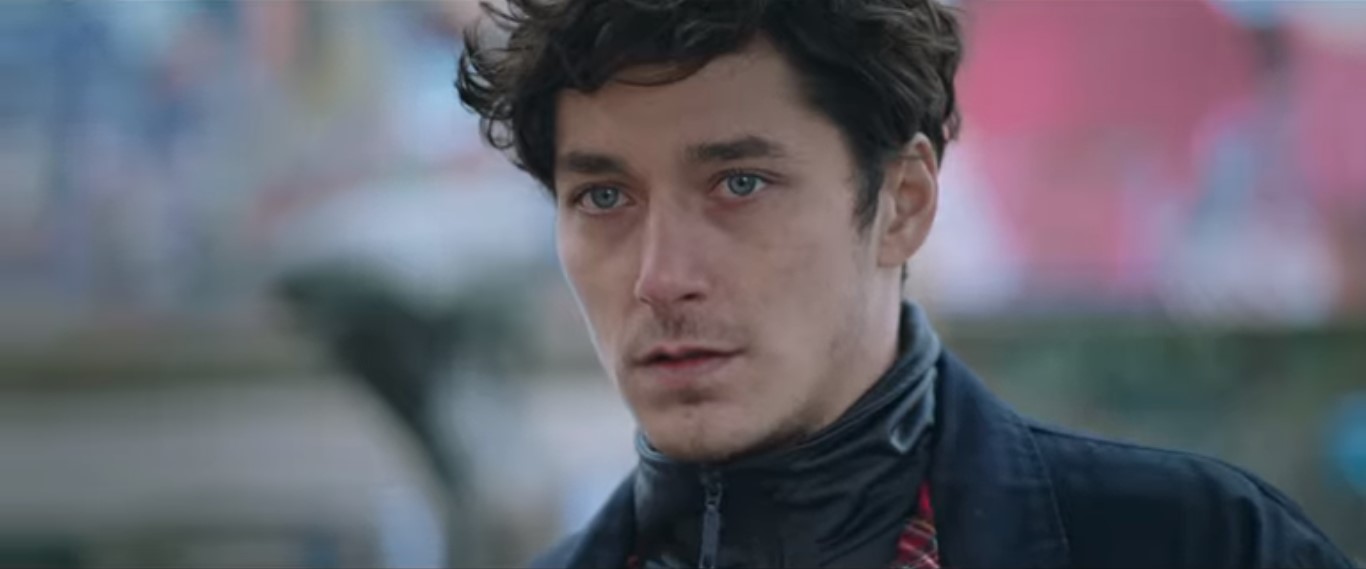Hitler once threatened the world by saying, “Today Germany, and tomorrow the entire world!” As Julia von Heinz’s coming-of-age indie political thriller ‘And Tomorrow the Entire World’ comes to a standstill, the audiences are made to reflect on their own political leanings and understandings. The story revolves around a left-wing organization called P81 and its many misadventures in the name of liberation and resistance.
However, the situation gets bleaker when their unflinching political commitment to resistance gets reduced to petty acts of vandalism. The film is characterized by its scathing insight into the politically segregated landscape of contemporary Germany. If you can’t get your head around the film, let us help you in grasping the subdued denouements. SPOILERS AHEAD.
And Tomorrow the Entire World Plot Synopsis
The film follows young law student Luisa as she finds herself sucked into the vortex of ideological conflict and political unrest in modern-day Germany. Anti-immigrant sentiments have given rise to a right-wing democratic political power, and the antifascists are trying to organize themselves and take down the government. The unrest has come to a boiling point, and antifascist movements are spreading roots across Germany.

At the beginning of the film, Luisa gets introduced to an antifascist organization called P81 and comes to befriend the members, including Batte, Alfa, and Peppa. They gather at a leftist campaign to raise their voices but are ambushed by the right-wing militia. One of the members of the militia accidentally drops his cell after capturing the entire rally on camera, and Luisa is prompt to pick it up. She tries to make a run with the phone but is caught and molested by the policeman until Alfa arrives at the scene. They manage to escape to a parking lot.
Dead at night, Luisa gets a phone on the cell but does not receive it. Luisa is tormented by her encounter with the police and becomes close to Batte while the group prepares themselves with physical training sessions. Later, she goes to class but comes to question the corrective ideology of the state-sponsored law school. Lenor manages to guess the password of the phone, and the party comes to know of a place named Helmsdorf. Lenor thinks that the place would be perfect for a little pogrom, and they leave the commune to go to the parking lot of Helmsdorf for initial planning.
The party gathers later in the evening to smash a few car windows but is attacked by concerned residents of the area. One of the attackers injures Luisa on her leg, and Alfa and Lenor drive her to a dissident nurse named Dietmar. Dietmar successfully operates Luisa with whatever is available at home, but the story of their vandalism has come on the news, and the group is upset. The story paints antifascists in a bad light, and seemingly the whole country turns against them, which exposes the resistance to further police brutality.

The party returns to the commune stealthily, but the voices of the antifascists are lost in a state-enforced conundrum. Meanwhile, Lenor comes to know that the phone belongs to a man named Manfred Rohler. Rohler was an active member of the resistance in the past, but he has been declared dead, and the sudden resurfacing of the man sends the trio — Lenor, Luisa, and Alfa — on a journey to exposition. They lay low outside the house of Rohler while Lenor calls Rohler to send his regards for the man’s commitment to the resistance.
But not long after, a car stops outside the house, which raises suspicion among the trio. They follow the car to what seems like a Nazi hideout. They trespass the fences to get to a storage room, where they come across confiscated leftist posters and explosives. After the discovery of the explosives, Luisa urges them to leave everything and flee the scene, but Alfa decides to take the explosive along with them. Communists are in league with the Nazis, and the bigger picture seems extremely bleak.
The Nazis are planning an attack on the German Community Centre, and the antifascists plan to retaliate with their own attack. While initially ideating the attack as a peaceful protest, the rebels are mobilized by Luisa as she convinces them of resorting to the same vandalism as the parking lot. After being kicked out by Lenor from the car on their way back, Luisa and Alfa end up at Alfa’s place to make love. When they return to the commune, it is already being raided by the police and they see Batte getting arrested.
The state has brought the P81 under the purview of section 129 after they find the explosive from the place. This is the very same explosive that the party took from the Nazi den. While hiding with Dietmar, the trio gets involved in a fight of their own and Luisa finds herself on her own. Frustrated, she goes to the Nazi den intending to kill the organizers, but the finality of the film suggests her resorting to something more covert and consolidated.
And Tomorrow the Entire World Ending: How is the Nazi Den Blown Up?
The final scene of the film sees the Nazi den getting blown to pieces with an explosion. The explosion is perhaps caused by their own stored away explosives, but who is the orchestrator of the event, we are made to ask. Previously, we have seen Luisa getting back to the den intending to shoot the members, but she finds herself unable to do it. Later, she is seen joining the gig of the enemies where a singer sings a white supremacist song where the lyrics are characterized by hatred towards the blacks and the Jews.

After momentary grieving, Luisa is brought back to the commune and joins her own group for a peaceful protest event. The event is incidentally hijacked by the state militia, and Batte and Luisa are arrested. In the finality of events, Luisa reconciles with the team seemingly after they get released from police custody. However, the deranged state of the antifascist organization suggests that they will not be able to match the coercive methods of the state and are condemned to live in the bubble of their subculture.
However, the final scene gives us a sense of poetic justice as the den of the Nazi community is blown in the explosion. The explosion is orchestrated by the antifascists and most likely, Luisa is the central catalyst of the explosion. The suggestion is that the state fears explosions, but dissent is bound to erupt at some point in time. The explosion gives way to a spectacular closure bringing the immense political tension that figures in the narrative from the beginning to the end.
Is Luisa’s Internal Conflict Given a Resolution?
Luisa suffers from an internal conflict from the very beginning of the story, partly due to her own social position and political understanding. Coming from an upper-class family, Luisa is a shy and reserved teenager, but as the story progresses, she is increasingly drawn to the flawed ideals of a woke subculture. She is a vegan and a leftist, and with the movement of the story, we see her political stance transforming from moderate to extreme.

In the finality of moments, Luisa is increasingly enraged due to the sheer incomprehensibility of the political tension, but speaking to Dietmar gives her comfort. She comes to realize the flaws in her previous idea of a revolt (which is smashing car windows). As she gets more and more disillusioned, we see her thoughts and actions deviating from the bigger narrative. But in the finality of events, Luisa’s conflict is given an overarching resolution as she makes amends with her gang.
Read More: Is And Tomorrow The Entire World Based On A True Story?


You must be logged in to post a comment.